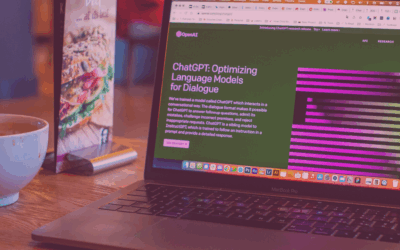In the complex world of search engine optimization (SEO), one term consistently takes center stage: link equity. It’s a concept that holds immense power in determining a website’s online presence and authority. Understanding how link equity operates and harnessing its potential can be a game-changer for optimizing search engine rankings and driving organic traffic.
Understanding Link Equity
Link equity, also known as link juice, can be defined as the value or level of authority transferred from a linking page to the specific page or pages it references through hyperlinks. This essential SEO concept encompasses both internal and external links, with the potential to significantly impact a website’s search engine ranking.
Several factors influence the amount of link equity passed, including the linking page’s authority, topical relevance, HTTP status codes, and other technical elements. Effectively managing and optimizing link equity is crucial for enhancing a website’s visibility and credibility in the competitive online landscape.
The Importance of Link Equity in SEO
Link equity plays a pivotal role in the realm of SEO, as it is intricately linked to Google’s page rank algorithm, a confirmed ranking factor. Essentially, the more link equity a webpage accrues, the higher its chances of securing a favorable ranking in search engine results. This is because search engines like Google interpret link equity as a vote of confidence and authority from other websites.
Consequently, websites with a robust link equity profile tend to enjoy better visibility and credibility, attracting more organic traffic. That’s why understanding, nurturing, and strategically optimizing link equity is a fundamental practice for any successful SEO strategy — it directly impacts a website’s ability to rise through the ranks in search engine results pages.
Factors Affecting Link Equity
Several factors come into play in determining link equity, with each element influencing the flow of authority and relevance from one webpage to another. Understanding these factors is essential for crafting an effective SEO strategy that maximizes link equity and boosts your website’s standing in search engine rankings.
Relevance of the Link
The relevance of a link is a critical factor influencing link equity. When a referring page is closely related or similar in niche to the destination page it links to, it passes on more value or link equity. This is because search engines view such links as a stronger indicator of content alignment and authority within a specific topic or field. For example, a link from a reputable tech blog to a tech-related website carries more weight in terms of link equity than a link from an unrelated source.
Quantity and Quality of Links
While both quantity and quality of links matter, quality holds greater significance in bolstering link equity. A limited number of high-quality, authoritative links from reputable sources can have a more significant impact than a multitude of low-quality links. Links from well-established and respected websites in a given industry or niche are considered more trustworthy by search engines and therefore contribute more substantially to link equity.
Authority of the Linking Site
The authority of the linking site is a crucial factor in determining the amount of link equity passed. Highly authoritative websites with a strong backlink profile, a substantial number of web pages, and a long-standing online presence are more likely to transfer substantial link equity to the linked page. Search engines consider such sites as reliable sources of information and trust their endorsements, resulting in a boost in link equity for the linked-to page.
Link Location and Crawlability
The location of a link on a webpage and its crawlability by search engine bots are technical factors that influence link equity. If a link is placed prominently within the content, it is more likely to carry higher link equity than links buried in footers or sidebars. Moreover, if a webpage uses the “nofollow” attribute or robots.txt file to block search engine crawlers from following a link, it signals that the link should not pass any link equity. Properly managing link location and crawlability is essential to maximize the value of internal and external links within a website’s SEO strategy, ensuring that they contribute effectively to the site’s overall link equity profile.
Determining and Measuring Link Equity
Tools to Measure Link Equity
To effectively measure link equity and gauge whether a site will pass valuable link juice to your own, several reputable tools are available. Tools like Semrush, Moz, Ahrefs, and Google Analytics are invaluable for assessing various metrics related to link equity. These tools provide insights into domain authority, referring domains, and domain age, helping you evaluate the authority and trustworthiness of potential link sources.
Semrush and Moz offer comprehensive link analysis, allowing you to explore the backlink profiles of websites and ascertain their link equity contribution. Ahrefs, renowned for its extensive database of backlinks, provides in-depth insights into link quality and quantity. Additionally, Google Analytics can offer valuable data on the traffic generated through referral links, helping you understand the impact of acquired link equity on your website’s performance. For WordPress users, Yoast’s SEO plugin also assists in optimizing links and ensuring they pass link equity effectively, contributing to improved SEO outcomes.
These tools collectively empower webmasters and SEO professionals to make informed decisions when building and managing their link equity strategies.
The Difference Between Link Equity and PageRank
Although related in the field of SEO, link equity and PageRank differ in their focus and measurement. Link equity primarily refers to the value or authority that is transferred from one webpage to another through hyperlinks. It is about the impact of links on the receiving page’s authority and search engine ranking. Link equity considers the quality, relevance, and quantity of links pointing to a particular page, both internally and externally.
On the other hand, PageRank is a specific algorithm developed by Google to assess the relative importance of a webpage on the web. PageRank evaluates the links a page receives from other pages and assigns a numerical score to each page based on the importance of the linking pages. It aims to determine the overall significance of a webpage in the broader web ecosystem.
In essence, while link equity focuses on the value passed through individual links and their impact on a page’s authority, PageRank is a broader algorithm that evaluates a page’s importance in the context of the entire web by considering the quality and quantity of links pointing to it. Both concepts are interconnected, but PageRank is just one of the many factors that contribute to a page’s link equity.
Passing Link Equity
When a web page passes link equity to another page through hyperlinks, it retains its own link equity and does not lose any of it in the process. In other words, the act of linking to another page does not diminish a page’s authority or ranking potential.
However, it’s crucial to ensure that these links are natural and not part of any manipulative or spammy link-building practices. Engaging in such practices may lead to a manual penalty from Google for unnatural links, potentially harming a website’s SEO performance. Therefore, while link equity can be freely passed between pages, it should be done in an ethical and contextually relevant manner to avoid any potential penalties from search engines.
Contact Us for Link Equity Assistance
Link equity is of paramount importance for SEO, and it plays a pivotal role in determining a website’s visibility and credibility on search engines. At BASE, we understand the significance of high-quality links. Our commitment to excellence is reflected in our extensive work across various industries, ensuring that the sites linking to you are not only relevant but also authoritative. These efforts are instrumental in enhancing your website’s link equity, which, in turn, can lead to improved search engine rankings and increased organic traffic.
In the competitive digital landscape, link equity remains a cornerstone of successful SEO strategies, and the team at BASE is dedicated to delivering results through strategic link-building practices. Contact us today for more information.



